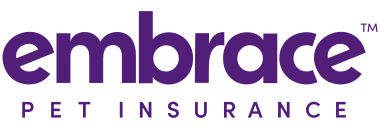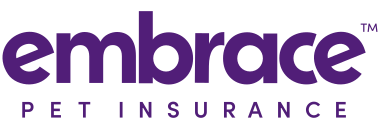The Best Browsers of 2024
We’ve compiled the best browsers in the market. And Fetch the best features for you, below.
01

KunPal - Zero Ads Browser
- Free VPN
- YouTube Adblocker
- Zero Ads Videos
- Rated 5 stars by the Editors
02

ZenestEx - Privacy Browser
- 1-Click Privacy Cleaner
- Built-in Web Antivirus
- Daily Virus Inspection
- Avoid web threats
03

Tuaeuc - Video Browser
- Video Speed Controller
- Video Adblocker
- Built to Last
- Hassle-free Video Watching
04

Kabulsky - Incognito Browser
- 1-Click Incognito Browsing
- Anti-tracker
- Data masking
- Automatically private
05

FeelTune - Fast Browser
- Auto Accept All Cookies
- Virus Checker for Downloads
- Smooth website navigation
- 1-click Antivirus
06

CodyLabs - Cinema Browser
- Never Ending Netflix - Auto play episodes
- VPN - Website Unlocker
- Borderless Internet
- The Access you want, anytime, anywhere
07

LulaDot - Business Browser
- Advanced Password Manager
- Free VPN
- All your data, where you need it
- Stop wasting time getting locked out of accounts
08

Lusenberg - Leisure Browser
- Free Adblocker
- Blocks pop-ups
- Personalize your browsing
- Say goodbye to auto-play videos
09

Moo3 - Gaming Browser
- Internet Speed Test
- Blocks pop-ups
- Free VPN
- Say goodbye to auto-play videos
10

FloatFall - Privacy Browser
- Free Privacy Check
- Free Cookie Cleaner
- Personalize your browsing
- Automatically private
11

Smastro - Secured Browser
- One Click History Cleaner
- Incognito Browser
- All your data, where you need it
- Free Cookie Cleaner
12

StrongDogz - Speed Browser
- One Click Close All Tabs
- Blocks pop-ups
- Free VPN
- The Access you want, anytime, anywhere
13

OnlineToolsTeam - Advanced Browser
- One Click Close All Tabs
- Free VPN
- Safe Browsing Mode
- Online Protection
14

CaptainKazoo - Safe Browser
- Anti Phishing
- Blocks Trackers
- Secured Browser
- Identity Protection
15

KoikanOu - Social Browser
- Email Tracking Blocker
- WhatsApp Privacy
- Blurs all messages in the current chat
- Blurs all profile pictures
16
Flare Browser- New Age Browser
- User-first browsing experience
- Quick access to tabs
- Transform your online experience
What Is Web Browser?
A web browser is software that allows you to access, retrieve, and view information on the World Wide Web. Here’s a breakdown of its core functionalities and components:
How Does Web Browser Work?
A web browser is software that allows you to view and interact with web pages. When you enter a URL or click a link, the browser translates the URL into an IP address using DNS. It then sends a request to the web server at that IP address for the webpage. The server responds by sending back the webpage’s files, including HTML, CSS, and JavaScript. The browser then reads these files to build and style the page, execute scripts for interactivity, and display it on your screen.
As you interact with the webpage, the browser continuously updates the page in response to your actions, such as clicking links or filling out forms. This process involves sending new requests to the server as needed and dynamically changing the displayed content based on the server’s responses and the JavaScript on the page. This seamless cycle of requesting, receiving, and rendering information allows you to navigate the web efficiently.
What Browser Do I Need?
1. Gaming Browser:
If you’re a gamer, look for a browser that offers features to enhance gaming performance.
- Features to Look For: CPU and RAM control settings, network bandwidth management, and integration with gaming platforms.
- Benefits: Optimizes your system’s resources to ensure smooth gameplay and offers gaming-related customization options.
2. Ad Block Browser:
For those wanting to reduce ads and trackers, choose a browser with built-in ad-blocking capabilities.
- Features to Look For: Built-in ad blocker, tracking protection, and fast page loading.
- Benefits: Provides a cleaner browsing experience by removing intrusive ads and preventing tracking, leading to faster load times.
3. Privacy Browser:
If privacy is a priority, opt for a browser that focuses on protecting your personal data and online activities.
Features to Look For: Advanced tracking protection, private browsing mode, and comprehensive privacy settings.
Benefits: Offers enhanced privacy by blocking trackers and minimizing data collection, and often provides options to customize privacy levels.
Alternative: For those needing strong anonymity, consider a browser that routes traffic through a privacy-focused network.
- Features to Look For: Traffic routing through secure networks, preventing tracking, and protecting against surveillance.
- Benefits: Provides high levels of privacy and anonymity, though it might be slower due to the routing method.
4. Secured Browser:
If security is your main concern, choose a browser known for its strong security features.
- Features to Look For: Built-in protections against phishing and malware, sandboxing, and regular security updates.
- Benefits: Protects against online threats like malware and phishing attacks, and often integrates well with other security tools.
Summary:
- For Gaming: Select a browser with resource management and gaming platform integration to enhance performance.
- For Ad Blocking: Choose a browser with an integrated ad blocker and tracking protection for a cleaner and faster experience.
- For Privacy: Look for a browser with strong tracking protection, private browsing modes, and customizable privacy settings. For higher anonymity, consider one that routes traffic through secure networks.
- For Security: Opt for a browser that provides robust protection against malware and phishing, with frequent updates and sandboxing for enhanced safety.
Each type of browser offers specific features tailored to different needs, so select the one that best aligns with what you prioritize in your online activities.
01

9.8
- Free Online Quote
- Up to 90% back on vet bills
- Freedom to visit any vet
- Rated 5 stars by Forbes
02

9.7
- 10% Discount for Multiple Pets
- Customize your annual limit, from $2,500 per year to unlimited
- Ability to choose your own deductible and reimbursement
- No networks: visit any licensed vet in the US
03

9.5
- 10% Off Bundle Discount
- Starting as low as $10/month
- See any licensed vet in the US
- Hassle-free, digital claims
04

9.3
- Choice of Deductibles from $50 to $1000
- Comprehensive coverage at affordable prices
- Pet specialists available through 24/7 helpline
- No upper age limit on enrollmen
05

9.2
- 100% Coverage Available for RX and Prescriptions Purchased on Chewy.com
- No caps or limits on pet care reimbursements with select plans
- Live video chat with veterinarians, free with most plans
- Starting at $20/month
06

9.1
- $1,000 in Online Vet Visits Included at No Extra Charge
- No exam fees—save $50-$250 per sick visit
- Optional routine & preventive care coverage
- Get back up to 90% on unexpected vet bills
07

8.9
- Cover All Your Pets Under One Policy with a Family Plan
- Get a quote in less than 2 minutes
- Reimbursement for up to 90% of vet costs
- Use any licensed vet in the US
08

8.7
- Save Up to 10% For Eligible Multi-Pets + Up to 15% Off for No Claims at Renewal
- Reimbursements of up to 100%
- See any licensed vet of your choice
- Claim reimbursement in just 24 hours
OUR TOP CHOICE

9.8
- Free Online Quote
- Up to 90% back on vet bills
- Freedom to visit any vet
- Rated 5 stars by Forbes
What Is Pet Insurance?
Pet insurance is similar to traditional health care, with coverage for various routine and unexpected medical needs. Insuring your pet can provide a financial safety net against accidents, illnesses, and other situations that can affect our four-legged friends. When accidents or health problems occur and veterinary bills begin to pile up, insurance policies can help owners save up to 90% on eligible payments.
How Does Pet Insurance Work?
Here’s an example of how pet insurance can save you big on vet bills: Mr. Fluffy was excitedly digging around in the backyard and swallowed something not-so-edible. When you notice he’s uncharacteristically ignored both dinner and breakfast, and didn’t even get up to bark at the delivery driver, you decide it’s worth a trip to the vet. With a little bit of medicine and care, Mr. Fluffy is back to his lively, (and obnoxiously hungry), self. The bill comes in a couple days later totalling $1,200–but no worry! You’re prepared for accidents and unexpected vet visits thanks to your excellent insurance policy. And, since you already met your out-of-pocket deductible on Fluffy’s routine vaccines, you simply submit a claim and watch your bill reduce by 90% for a total of just $120.
What Coverage Does My Pet Need?
The type of coverage your pet needs will vary based on their age, breed, and individual health needs. Here are some ideas that will help you get a better idea of how you can customize your insurance policy:
- Accident and Illness Coverage: Pets of all ages experience accidents and unexpected illnesses. Comprehensive accident and illness coverage ensures that you’re financially prepared for any veterinary expenses that might come your way.
- Wellness and Preventive Care: Some pet insurance policies offer optional wellness or preventive care coverage, including vaccinations, routine check-ups, annual screenings, and more. This can be especially important for young pets that require starter vaccines and early care.
- Hereditary and Congenital Conditions: It’s hard to say if your animal may be at risk for hereditary or congenital conditions. Whether you’re unsure or positive the risk is low, these conditions can pop up at any stage of a pet’s life. Some insurance policies may cover these types of conditions, often requiring long-term care and expensive specialized care.
- Behavioral Coverage: Young and growing pets may exhibit behavioral issues that require professional training or therapy. Certain plans include coverage for behavioral issues, which can be helpful in managing your pet’s behaviors and long-term safety.
- Liability Insurance: If you have an especially active or defiant pet, you may want to consider liability coverage as a preventative measure. This can protect your pet and others from harm or property damage.
- Dental Care: Dental health is important for keeping pets of all ages healthy into adulthood. Dental procedures and care can often be added to plans if it isn’t already included.
- Pre-Existing Conditions: Pre-existing conditions are typically not covered by pet insurance. Insuring your furry friend as soon as possible is a smart way to avoid coverage exclusions if health issues occur.
Compare Top Insurers
View our list of paw-some insurers above and choose a policy with confidence.

How We Rank?
Frequently Asked Questions (FAQ)
Why Compare with Us?

Compare Plans

Choose
Confidently


